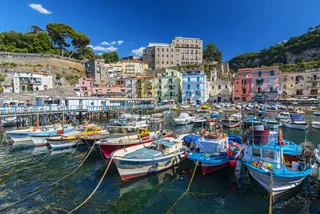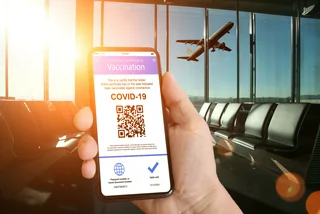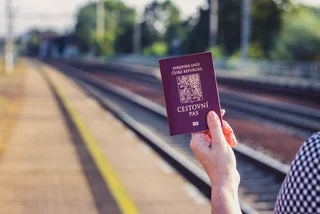UPDATE: As of 4 p.m., May 28 the Czech health ministry stated that Austria and Hungary will recognize the first vaccination dose as sufficient for a person's unrestricted entry, while Germany and Poland still require complete vaccination. "These countries will acknowledge our vaccination certificates but it still depends on what conditions each of the countries has set," Health Minister Adam Vojtech said. Travel restrictions for Czechs are guided by the travel map, updated by the ministry on Fridays. - ČTK
On Friday, May 28, it was announced that free travel will open between the Czech Republic and Austria, Croatia, Germany, Hungary, Poland, Slovakia, and Slovenia as of Monday, May 31 to those with their first vaccine dose.
Other destinations are also opening up for tourists this summer, including some of the most popular spots for Czech holidaymakers (Croatia, Bulgaria, Greece, and Italy) while some European destinations (Norway, Finland) remain essentially closed. Other in-demand vacation locations, Egypt, for example, will continue to require mandatory testing.
We've put together an FAQ on summer travel from the Czech Republic. While this information was accurate at press time, we suggest checking the regularly updated country-specific list of travel restrictions published on the Ministry of Foreign Affairs' website.
Which destinations are currently open for tourism?
Austria is now open to tourism. People traveling to Austria from countries with a low incidence of new cases of coronavirus infection, including the Czech Republic, do not need to be quarantined as of May 19. People from those low-incidence counties can visit for any reason, including tourism. Travelers to Austria must still provide proof of vaccination, recovery, or negative test. Proof of vaccination or recovery must be issued in English or German. Austria recognizes vaccination with substances approved by the European Medicines Agency (EMA) or the World Health Organization (WHO). Austria will accept proof of a single vaccination more than 22 days previously from people in the Czech Republic for the purposes of travel.
Bulgaria has reopened for tourism for people from 87 countries including the Czech Republic. Many tourist attractions are operating at limited capacity. The country's Ministry of Tourism recommends "discipline, distance, and disinfection" for those who visit. A document confirming full vaccination two weeks after the last dose, recovery from Covid, or a recent PCR or antigen test is required for entry.
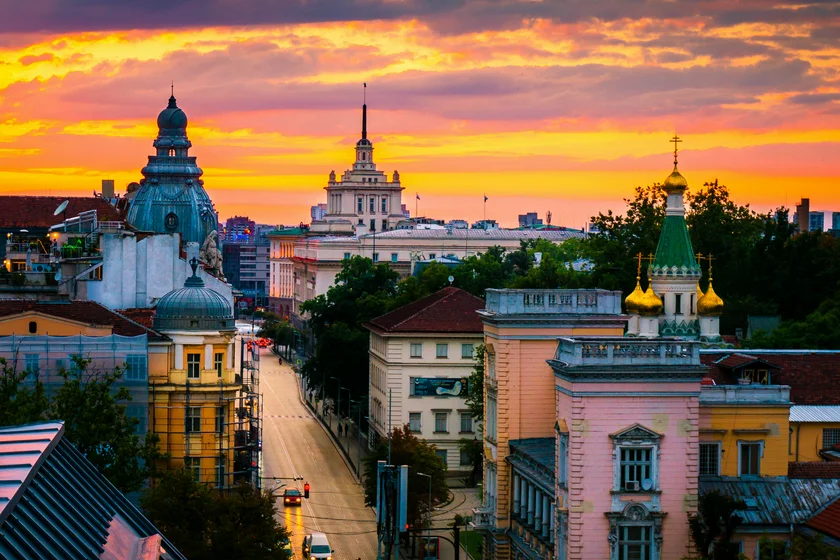
Croatia has been open for tourism since the start of May. The country has a Safe Stay in Croatia program that saw large-scale vaccinations of people working in the tourism sector. Many services such as restaurants are operating only in limited capacity.
A dalÅ¡Ã dobrá zpráva: pro oÄkované ÄŒechy by mÄ›lo být možné volnÄ› cestovat na dovolenou do Chorvatska už po 1. dávce - doladÃme bÄ›hem vÃkendové návÅ¡tevy Chorvatska. #Dovolena2021
— Jakub Kulhanek (@JakubKulhanek) May 28, 2021
Cyrpus has been open to tourism to people from many countries since the end of April, but everyone needs to fill out a Cyprus Flight Pass form before arrival. The country has a traffic light system, and most of Europe including the Czech Republic is red. People who are not fully vaccinated coming from red countries need to have PCR tests before departure and upon arrival. People who can provide a certificate saying they are fully vaccinated no longer need a PCR test. Cyprus accepts EMA-approved vaccines as well as Sputnik V.
France is discouraging travel at this time except for necessary travel. Many restrictions including a curfew in urban areas are still in place. A traffic light should be introduced by June 9, and tourism travel from other European countries should them be allowed. More details should be announced at that time. The country plans to rely on the EU's planned Covid passport. Quotas for many popular sights are expected.
Germany is opening up to tourism on a state-by-state basis. Some states are are already allowing indoor dining for people who have been vaccinated, recovered, or have a recent Covid test, Others will be joining in slowly though June. People from the Czech Republic who have one Covid vaccine shot at least 22 days old can enter Germany without having to take a Covid test. People have to register before arrival on the German government's travel portal.
Greece reopened to tourists as of May 14, and people won’t need to quarantine on arrival unless they don’t pass a random Covid test on arrival. Key to the country's five-pillar plan to ensure safety is that passengers present either a vaccination document or a negative result of a coronavirus test, no more than 72 hours old, upon their arrival. The vaccination needs to have been completed (both doses if two are required) 14 days before arrival. There will be a random checking system at the frontier, quarantine hotels for self-isolation, vaccinations for hotel and tourism workers, and observation of strict health protocols.
Hungary recognizes vaccination, testing and recovery certification issued in the Czech Republic. People three weeks after their first vaccination dose do not need Covid testing. Accommodations are open to people with certification. More information can be found on the website of the Hungarian travel board.
Italy allows tourists from EU countries including the Czech Republic, plus the UK and Israel to enter the country without quarantine as of May 15 but they must have a recent negative Covid test. The country is also vaccinating the entire population on some islands to make them safer tourist destinations. Restaurants have reopened, but many restrictions are still in such as a night curfew.
Portugal opened to tourism to people from the Schengen Zone, which includes the Czech Republic, on May 17. So far, PCR testing is required for entry. Some of the restrictions that have been in place should be relaxed as of the start of June. The country's tourism department is issuing "Safe and Clean" seals to places that meet requirements for providing activities with minimal risk of spreading Covid.
Slovakia will have more lenient rules for incomers from the Czech Republic as of May 31. People arriving to Slovakia from the Czech Republic, must register via the e-border form. Vaccinated individuals, those who've had Covid in the last 180 days, and those under the age of 18 only need to comply with the registration obligation, and do not have to take the test. Testing, which can be done immediately upon arrival in Slovakia, is mandatory for those who are not yet vaccinated (as is the registry obligation).
Slovenia has allowed hotels to reopen and is following a traffic light system for to determine Covid-risk for countries. The Interior Ministry has launched an online Enter Slovenia app to facilitate travel. People from countries on the red list, which currently includes the Czech Republic, must provide a PCR test or a vaccination certificate, otherwise they need to quarantine. Current information is available from the Slovenian Tourism Board.
Spain allows tourism travel for people from most places in the European Union, Australia, China, South Korea, Japan, New Zealand, Rwanda, Singapore, Thailand, and Uruguay. People from these areas, which include the Czech Republic, can enter Spain without having to undergo quarantine. A recent PCR or similar test is required, but antigen tests are not sufficient. Currently, the PCR test is required even for vaccinated or recovered people. Tourism should open to people from more non-EU countries as of June 1. A state of emergency ended May 9, opening up travel between regions and lifting many restrictions. The country is looking forward to the EU's green passport, which it hopes will make travel easier.

What tests or documents should I prepare for travel?
It is necessary to have the proper Covid tests, a medical certificate confirming recovery, or vaccination certificates required for your destination before leaving the Czech Republic. The requirements change constantly, so it is important to stay up to date. The requirements for some destinations can be found on the Ministry of Foreign Affairs website. You should also check with official sources at your destination. Documents are now checked for countries both in and outside of the Schengen zone.
Do I need supplementary travel insurance?
Travelers should check with their insurance companies to find out what exactly is covered. Some insurance companies cover expenses due to Covid in the standard insurance to people traveling to countries designated as green and orange in the traffic light system used by the Czech Ministry of Foreign Affairs, but high-risk and very high risk countries designated as red or dark red are not covered.
Vaccination reduces the risk of infection, but does not rule it out. There can also be false positive results on arrival at a destination or just before departure, and this will still lead to additional expenses for quarantine until another test reveals the mistake. Insurance will cover this situation as a standard disease, so all costs associated with it are covered as medical expenses.
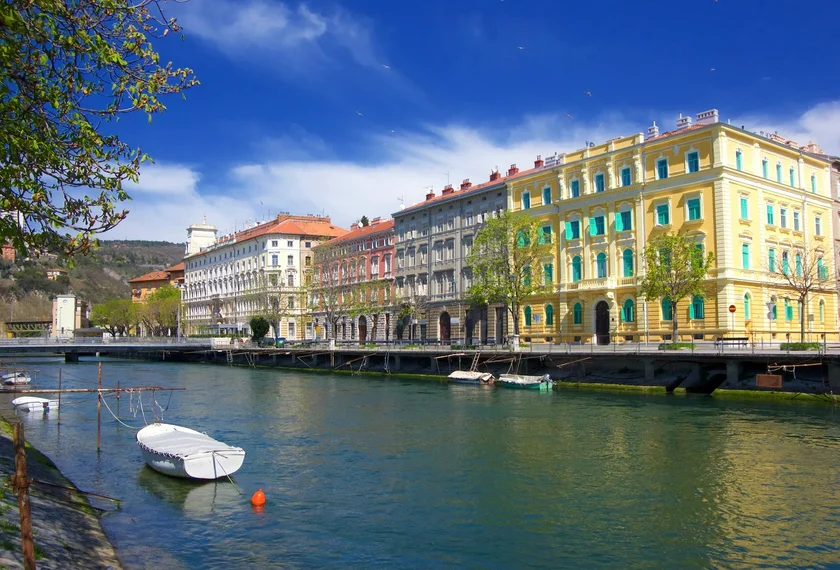
Some travel industry experts recommend supplemental insurance in case you contract Covid on vacation. It might not be covered automatically, especially in riskier countries. The supplemental insurance would cover an extended stay at your destination due to being quarantined or having to go to a hospital. It also covers having to cancel a vacation due to illness before departure. It that case, people should get their money back except for a handling fee.
People can also have to quarantine due to having been in contact with an infected person. In these cases some types of supplemental insurance cover extended stays and rescheduling transportation, but not additional Covid tests. There can also be a co-pay required.
What should I expect at the airport?
Some airlines, including Czech Airlines and Smartwings, for the protection of fellow passengers, require a recent negative Covid test or vaccination or recovery certificate regardless of the requirements at the destination. Specific information can be found on each airline's website. There is also a list on the Václav Havel Airport website.
All normal rules still apply, such as those regarding the size of luggage for each carrier as well rules for liquids and sharp objects.
It is still necessary to wear FFP2 face protection at Czech airports and other travel hubs. People are encouraged to make use of hand sanitizers and other hygiene precautions.
Air travelers are advised to arrive two to three hours before departure, due to the extra steps now requires before boarding, such as checking for a Covid test certificate if the destination requires one. Last-minute tests can be done at the Václav Havel Airport Prague, for example, but these are costly and the process is time-consuming. It is better to bring the results of a recent test.

What do I need to return to the Czech Republic?
Just as with leaving, the Ministry of Foreign Affairs has a color-coded travel system, with different requirements for return from each category of country. The colors range from green to dark red, and then black for extreme risk countries where travel is banned except for extraordinary circumstances. For all except countries in the green category, PCR or antigen tests are required, unless you have a valid vaccination certificate issued by Czech authorities or from one of the countries that has an agreement with Czech authorities.
Isolation is required on return in some circumstances. People coming from medium- or high-risk countries in the EU area who have not been vaccinated will have to isolate until they get results from a PCR test taken within five days of arrival. People coming from very high-risk countries, even with vaccination, have to be tested before leaving to return to the Czech Republic and then isolate for five days after arrival in the Czech Republic before taking another PCR test.
A map, chart, and information in English is also on the Health Ministry's coronavirus website.
The Ministry of Interior has more information on requirements for returning to the Czech Republic for Czech citizens and residents, and for non-residents.
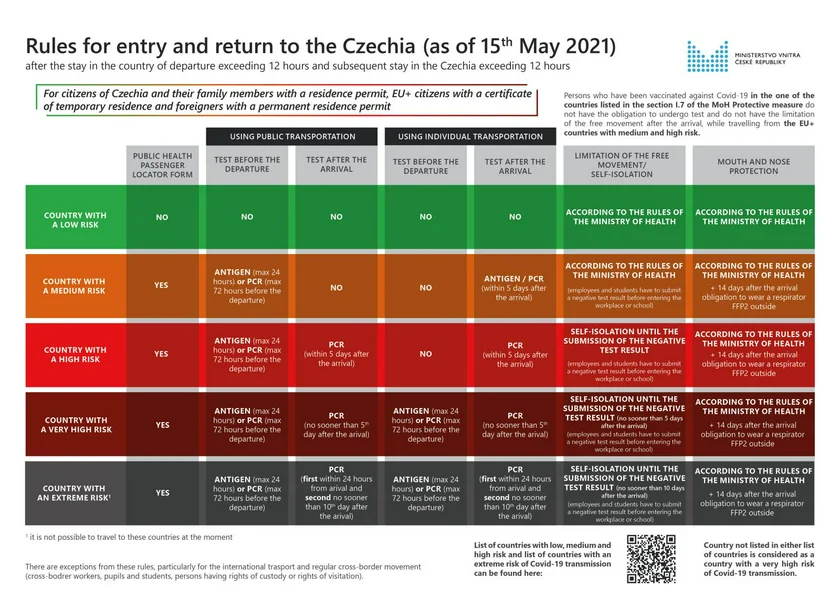
Can I travel without a test after one vaccine shot?
People who received one Covid-19 vaccine dose in the Czech Republic at least 22 days ago will be allowed to enter the Czech Republic from the countries with moderate and high coronavirus infection risk (but not very high or extreme risk) without the need to be quarantined and tested for Covid. People who received the first vaccine dose at least 22 days ago in the neighboring Austria, Germany, Poland, and Slovakia as well as in Hungary and Slovenia, will be able to enter the Czech Republic without testing or quarantine. Under similar conditions, people vaccinated in the Czech Republic will be allowed to go to these countries.
When are Covid passports coming?
The European Parliament and EU members have agreed on the conditions for a digital and physical document that would facilitate travel across Europe. It will be called the EU Digital Covid Certificate and would confirm that the holder has been vaccinated against, tested for, or recovered from Covid. It should get final approval by the EU's governing bodies in the June 7–10 session and be is use by early July.
According to an EU press release, if someone has the certificate, then member states should not impose additional travel restrictions such as quarantine, self-isolation, or testing, “unless they are necessary and proportionate to safeguard public health.” Member states will be obliged to recognize vaccinations with EMA approved vaccines. It will be up to each country if they recognize others such as Sputnik V. The EU has set aside money to make testing more affordable for people who have to travel often.
The Czech Republic is also working on its own version of a travel certificate as a “plan b” in case there are delays with the EU one. The lower house of the Czech parliament has declined to approve legislation to allow the EU Digital Covid Certificates to be approved in a fast-track regime.
Can I use a vaccination certificate from another country?
Until the EU or Czech Covid passports are ready, the Czech Republic will only recognize some foreign vaccinations. The Czech Republic announced it will be recognizing certification from Poland, Hungary, Austria, Germany and Slovakia. The certificate should be in English or Czech. If if is not in English or Czech, a certified translation is needed.
The Czech Republic is not recognizing certification from other countries, so people who were vaccinated in the U.S. or UK, for example, will still have to follow the rules for unvaccinated people, and provide PCR or anitgen tests and isolate if required according to the risk chart for the country they are returning from.
When can my family come visit me in the Czech Republic?
Even though hotels have been allowed to reopen, widespread foreign tourism is still not yet allowed. Foreigners from certain countries can come to the Czech Republic only on the grounds of essential reasons, not for tourism or visiting friends. The government is working on opening tourism with the introduction of Covid passports, but no firm date has been set. However, Foreign Minister Jakub Kulhanek tweeted on Friday, May 28, that vaccinated travelers from Australia, Israel, New Zealand, Singapore, and South Korea will be allowed to travel to the Czech Republic and use local accommodation services and restaurants as of Tuesday.












 Reading time: 11 minutes
Reading time: 11 minutes 


 English
English
 Finnish
Finnish
 German
German
 Czech
Czech
 Spanish
Spanish

